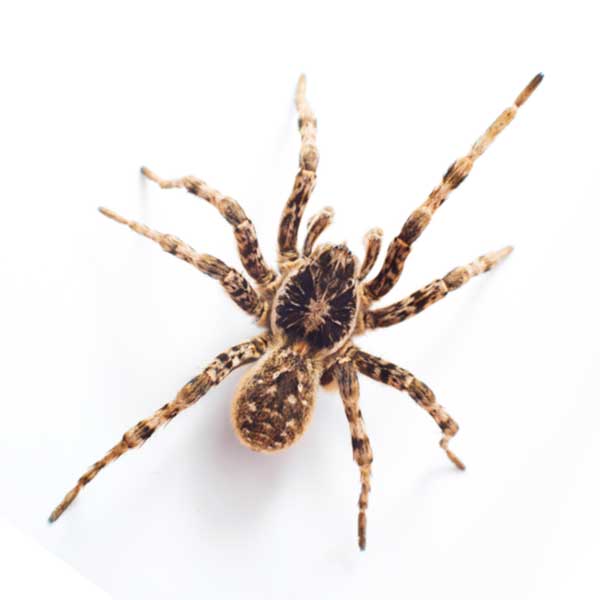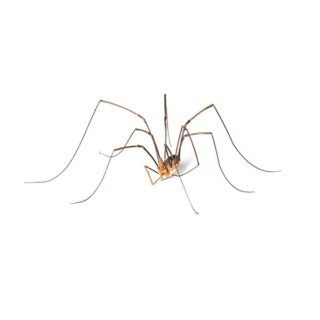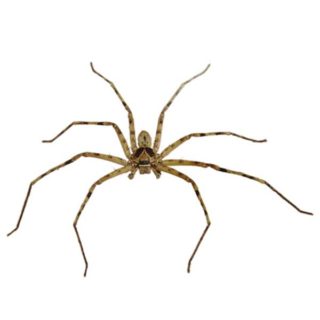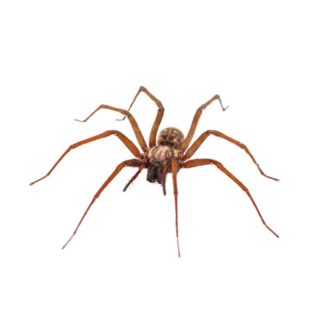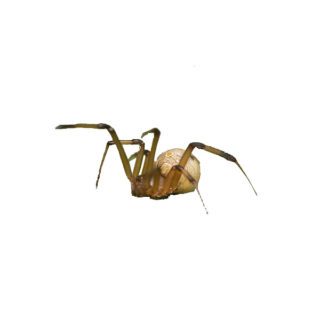Identifying Wolf Spiders in Florida
Wolf spiders, part of the Lycosidae family, are robust, agile hunters known for their excellent eyesight and quick movements. Typically brown or gray with distinctive stripes or markings, they can grow up to 1 ½ inches in size. Unlike web-building spiders, wolf spiders are ground-dwelling predators that chase and pounce on their prey, primarily insects.
Wolf spiders are active hunters and patrol the ground for insects, small spiders, and similar prey and cause the greatest concern when encountered in homes. These spiders have excellent vision, allowing them to see humans approaching them, at which point, they flee. Many wolf spiders are nocturnal and use a reflective structure to maximize vision at night. Shining a flashlight at ground level will often allow one to see the green eye shines of this spider reflected from 10-30 feet away, depending on the spider’s size. Female spiders may sometimes be seen with their young riding on their backs until they are independent enough to go off on their own. Wolf spiders are rarely pests, but they sometimes wander into houses, where their large size often frightens homeowners.
Where in Florida Do Wolf Spiders Live?
Wolf spiders do not use webs to capture prey and actively hunt in the open during the day and night, often living by the thousands in leaf litter and grassy areas. Some wolf spiders build small burrows and defend a territory, others are free-roaming. Because they are so numerous, and such voracious predators, wolf spiders are a very important part of any ecosystem in which they occur.
How Common Are Wolf Spiders in Florida?
Wolf spiders are a very common Florida spider species, thriving in the state’s warm and humid climate. They are frequently found in gardens, lawns, and wooded areas, as well as inside homes, and their adaptability allows them to inhabit various environments, from coastal regions to urban settings. Known for their hunting skills, wolf spiders play a crucial role in controlling insect populations.
Are Wolf Spiders Dangerous?
Wolf spiders can bite, but their bites are extremely rare. While they may be fast and aggressive when hunting their insect prey, they don’t usually bite people unless they are provoked or mishandled. A wolf spider bite may be painful, but it is not generally dangerous to healthy adults. However, sensitive individuals such as children, the elderly, and people with compromised immune systems may have some form of negative reaction.
If you are dealing with wolf spiders in your Jacksonville FL property, contact your local spider exterminators.
Need Help With Wolf Spider Control in Florida?
For help with wolf spider control in Florida, contact your friendly local branch of Bug Out. We’re happy to resolve spider problems and can advise on how best to spider-proof your home to help avoid further infestations.
Need help with Wolf Spider control?
FAQs
Do Wolf Spiders Hunt at Night in Florida?
Yes, wolf spiders are nocturnal hunters in Florida. These agile predators are known for their exceptional speed and keen eyesight, making nighttime the perfect hunting period. During the day, wolf spiders typically hide in burrows or under debris to avoid the heat and predators. At night, they actively seek out prey, including insects and other small invertebrates.
What are Wolf Spiders’ Predators in Florida?
Wolf spiders in Florida face several natural predators. Birds catch them during the day, and small mammals, like shrews and mice, also hunt wolf spiders. Additionally, lizards and amphibians such as frogs and toads find wolf spiders to be a tasty meal. Even other spiders, including larger wolf spiders, can be threats. These predators help maintain the balance in Florida’s ecosystems. If wolf spiders are becoming a problem in your home, Bug Out Florida’s professional pest control team can effectively manage their presence while respecting their role in nature.
How Can You Remove a Wolf Spider From Your Home in Florida?
Wolf spiders are generally harmless, so if you find one in your Florida home, it is usually best to leave it alone or gently guide it outside. You can capture it using a piece of cardboard and a jar: gently catch the spider in the glass and then slide the cardboard underneath, then release it away from your home. If the problem persists, get in touch with your local Bug Out Florida branch.

